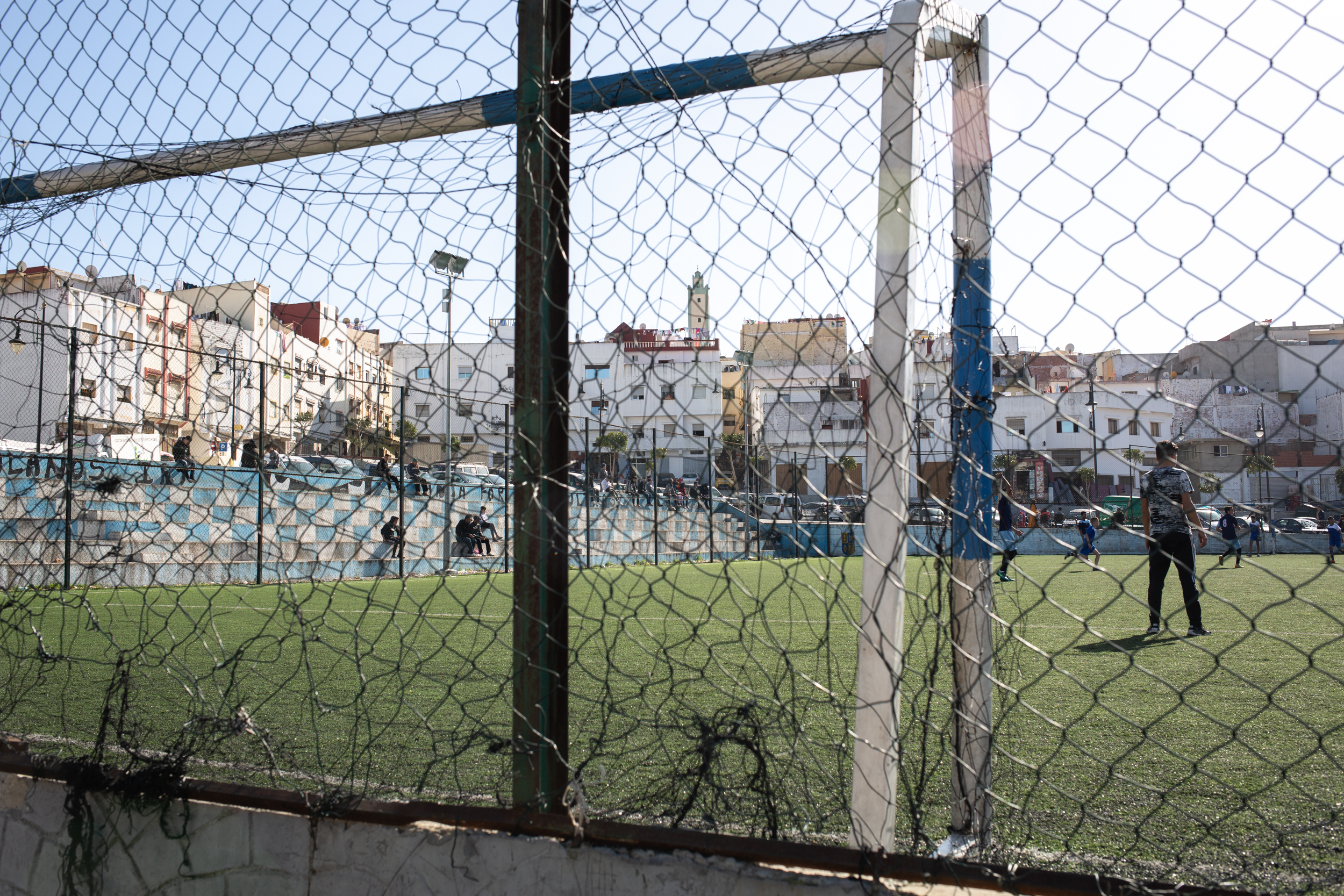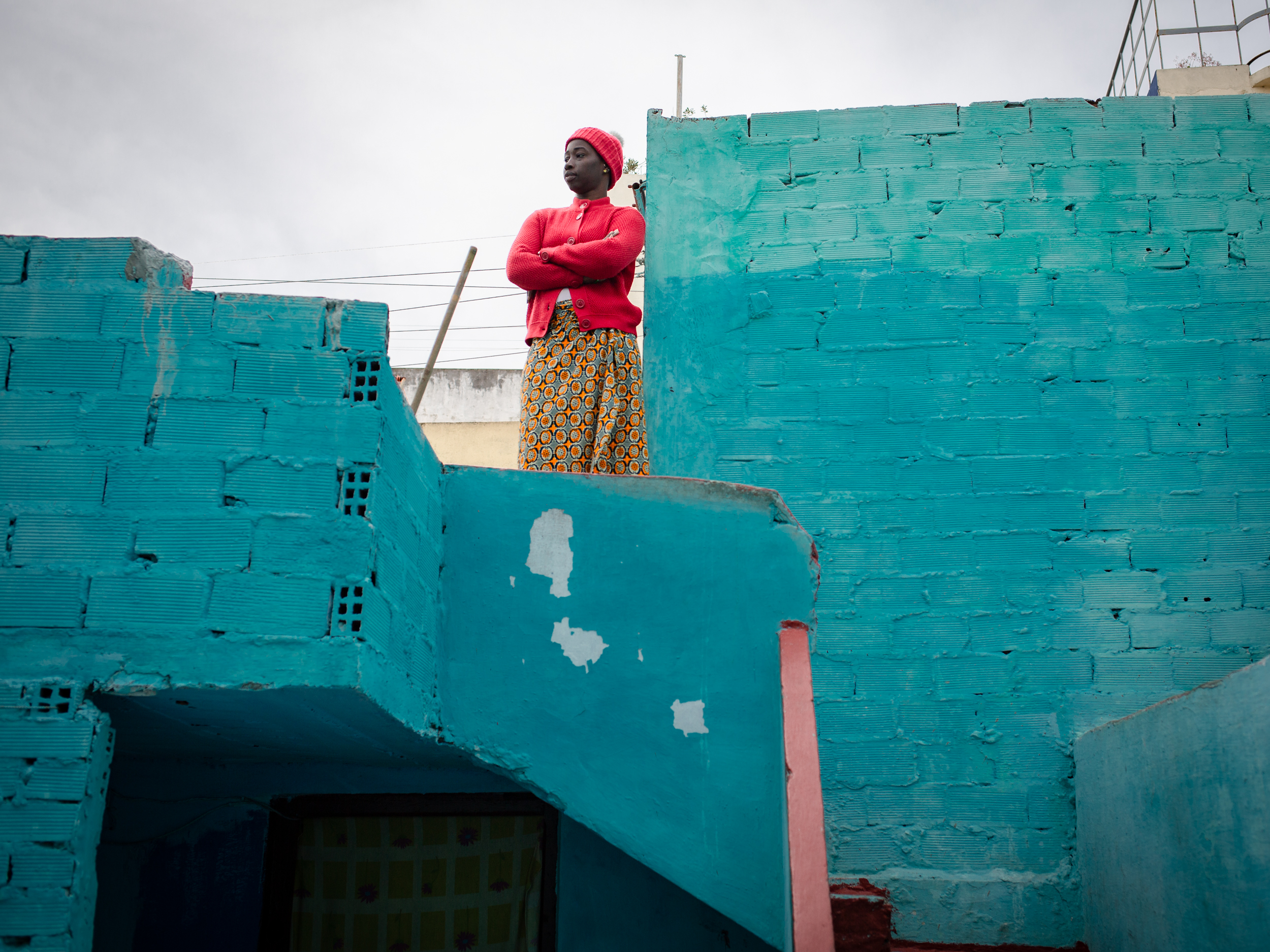The civil war in Liberia took everything from me: my perspective, my home, my mother. I left the country when I was twelve, 25 years ago and I traveled a lot in West Africa and made my way through.
I came to Morocco in 2010. In Tangier, I moved into a large house in the medina and offered other migrants a place to sleep. There was always a lot going on in the house and over time I was called "President".
Now I am called when there is a conflict and I try to mediate. If a Liberian comes to Tangier without a penny in his pocket, I'll organize help as best I can.
I am responsible for events, for example our annual Liberian independence festival or football matches. It is important that we can laugh sometimes, even when it is not easy.


I know many Liberians who have come here with war trauma, I am one of them myself. And then more problems await us in Morocco.
You can't do anything here without a residence permit do. You are not allowed to work, you cannot integrate, you have no right to medical help. But everyone has their reasons why they can't go back. Above all, you must not be a chameleon and always look in two directions - to Europe and home.
You have to choose.
- Christopher, 37, Liberia -
I studied management in Senegal and then worked in a butcher's company for twelve years. Then the company went bankrupt and I had to pack my things.
I have traveled to different countries and finally thought: Why not to Morocco, and then on to Europe?
I've been in Morocco for almost eight years now. I have tried to get across the sea and the border fence many times for years. But it's too depressing when your brothers make it and you don't.
I've lived in Tangier since 2014, first in the Meznana district. Meznana and Boukalef - these are the districts where a lot of migrants lived at that time. When the boomla started in August, blocks of flats were cleared every day.
The police asked the shop vendors or café operators where the blacks lived. They also came to my house, kicked in the door and deported me to Tiznit in southern Morocco. When I had enough money to go back to Tangier, I moved to the old town. In Meznana and Boukalef you won't see any black people today.


I've been part of Alarmphone since 2015. We inform migrants about the risks and provide them with a telephone number where they can call at any time in the event of a shipwreck or other emergency. I think it would be good if we could position ourselves more politically. We are for open borders and human rights and against racism. But a demonstration would be too risky. Five months ago sub-Saharan migrants protested [in Nador] and they were all arrested.
Our work is exhausting and important. Last summer we coordinated twenty boats over the phone on some days, many of them were saved thanks to us by the Spanish lifeboats of the Salvamento Maritimo.
But too many people continue to die in the Mediterranean. A year ago a good friend drowned. He had been given a place in a paddle boat on the spur of the moment and had no life jacket with him. The boat bursted and the Moroccan Navy was late.
got a temporary residence permit three years ago. With it I could work in a hotel. When the traffic ran out, I lost my job and had to take care of the papers again. My title was recently renewed. Now I want to find work, maybe at the port or as a chauffeur. But it is not easy in Tangier, the police checks do not stop and a week ago I was arrested despite my papers.
The longing to see more of the world and to live a better life remains.
- Bousso, 43, Senegal -

I came to Tangier in June and the boomla started in August. They arrest us all over the street, we cannot go outside without constantly looking left and right.
I rarely leave the house and almost only at night.
Sometimes I don't have anything to eat during the day, but I donët go out, I don't want to be arrested.
Once they came to our house. I was already in bed, but they kicked the door until I opened it. Then they took me to Tiznit. Even when I sleep, I must be scared.
I've been told the boomla has never lasted that long. I pray that it will be quieter soon. Before the boomla, we went for a walk on the beach or met in Café Central, a popular meeting place for migrants. The police even cleared the café. Now even the passeurs donët dare to go outside to organize the trips.
I tried it once across the Mediterranean. But we didn't even get to the boat, then we had to turn back because of the police. I never saw my 1500 euros for a place in the rubber dinghy again. If I were told now, come, there is a place for you, I would not hesitate. The crossing doesn't scare me.
I worked as a hairdresser in Senegal. But the money wasn't enough. My two children are still in Senegal with my mother. We phone every day. If I've made it, they should come. I want to give them a good education and a good life. I work for her, I live for her.
I can't just go back like this. People think youëre coming with bags of gold, and I can't even afford the tickets to go back.
I can't go back, I can't go on And here in Morocco I have to hide. Sometimes I think and think and think until my head almost explodes. It is so hard. My only hope is that I can make it to Spain this summer.
- Mimi, 27, Senegal
